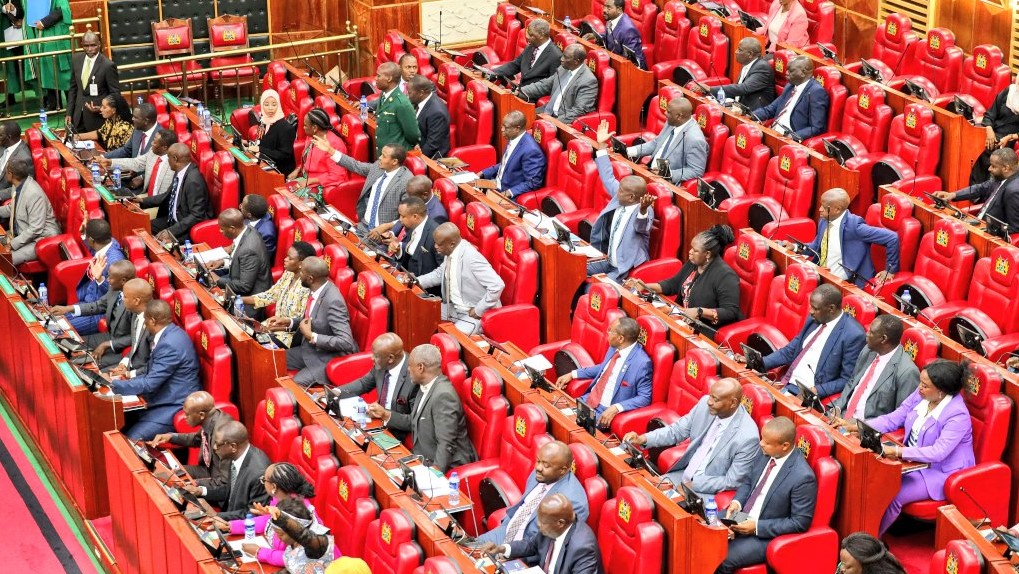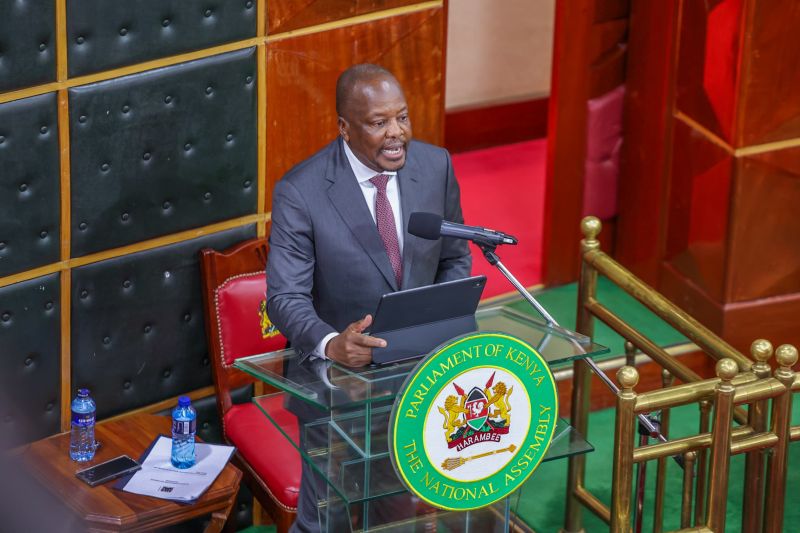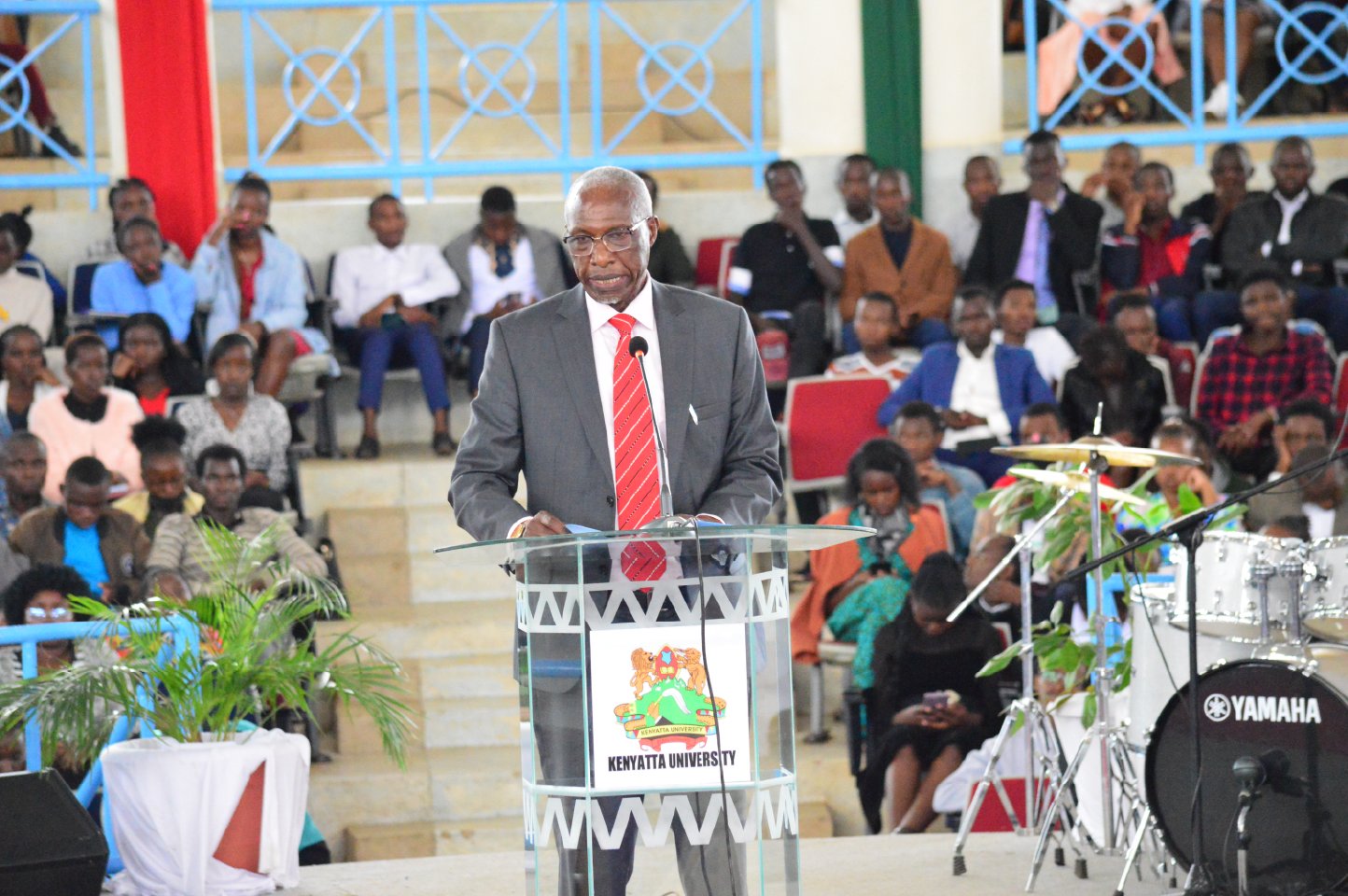MPs move to shield Parliament from court orders

The Justice and Legal Affairs Committee (JLAC) of the National Assembly recently rejected a proposed constitutional amendment aimed at clarifying that all state officers must comply with court orders.
A section of Members of Parliament (MPs) is pushing to shield Parliament and state officers from being bound by court orders.
The Justice and Legal Affairs Committee (JLAC) of the National Assembly recently rejected a proposed constitutional amendment aimed at clarifying that all state officers must comply with court orders.
More To Read
- IEBC warns Parliament against rushed electoral reforms ahead of 2027 General Election
- MPs return from recess with NADCO Bills top of agenda
- Broad-based government gains 7 per cent support but faces rising opposition - TIFA
- Supreme Court warns political leaders that undermining IEBC threatens 2027 polls integrity
- Parliament passes Bill imposing tougher penalties for electoral malpractice
- Katiba Institute, KHRC sue to block Ruto’s KNCHR nominee over gender rule breach
The National Dialogue Committee (NADCO) had suggested changes to Article 75 of the Constitution to enforce such compliance.
The Constitution of Kenya (Amendment) Bill, 2023, which emerged from NADCO, also sought to empower courts to impose sanctions on officers who disobey court rulings.
However, the JLAC, led by Tharaka MP George Murugara, found the proposed amendment untenable.
In its report, the committee noted that the proposal contradicts the doctrine of separation of powers outlined by constitutional experts during the drafting of the 2010 constitution.
The committee expressed concerns that the amendment would undermine the independence of the three branches of government.
The report emphasised that willful disobedience of court orders is already addressed in Section 4 of the Contempt of Court Act, Cap 8F.
Key MPs in JLAC include Farah Maalim (Dadaab), Edward Muriu (Gatanga), TJ Kajwang (Ruaraka), and Kirinyaga Woman Rep Njeri Maina, among others.
Dissenting opinion
However, Wajir East MP Aden Daud dissented from the committee's stance, issuing a minority report in favour of the proposal.
He argued that NADCO's initiative aims to ensure state officers comply with court orders. Parliament has previously clashed with the judiciary over injunctions.
A notable instance involved an attempt to halt the Senate's impeachment proceedings against Kericho Governor Eric Mutai, which Senate Speaker Amason Kingi ruled was beyond the court's purview due to separation of powers.
Additionally, recent court actions have complicated attempts to impeach Deputy President Rigathi Gachagua.
While this process was set to conclude on October 21, 2024, it faced legal challenges that disrupted its progress. Judges have long complained about the executive's disregard for court orders.
Tensions escalated earlier this year when President William Ruto threatened to ignore court rulings that he claimed obstructed key government projects.
He suggested that some judges were colluding with the opposition to delay initiatives like the Housing Fund and universal healthcare.
The rollout of digital identification cards also faced court delays due to insufficient public participation.
The government's plans to sell state parastatals for efficiency and productivity were successfully contested in court.
The judiciary's concerns about executive overreach are not new; former Chief Justice Willy Mutunga highlighted similar issues in 2014, accusing the executive of undermining judicial authority.
His successor, David Maraga, faced similar challenges, especially following the Supreme Court's nullification of the 2017 presidential election.
Top Stories Today












































